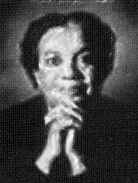The Educational Theory of Marian Wright Edelman
|
Analyst: Sheneka T. Soloman |

|
|
Analyst: Sheneka T. Soloman |

|
The mission of the organization is to leave no child behind, and to ensure every child has a healthy start, a head start, a fair start, a safe start, and a moral start in life and successful passage to adulthood with the help of caring families and communities.